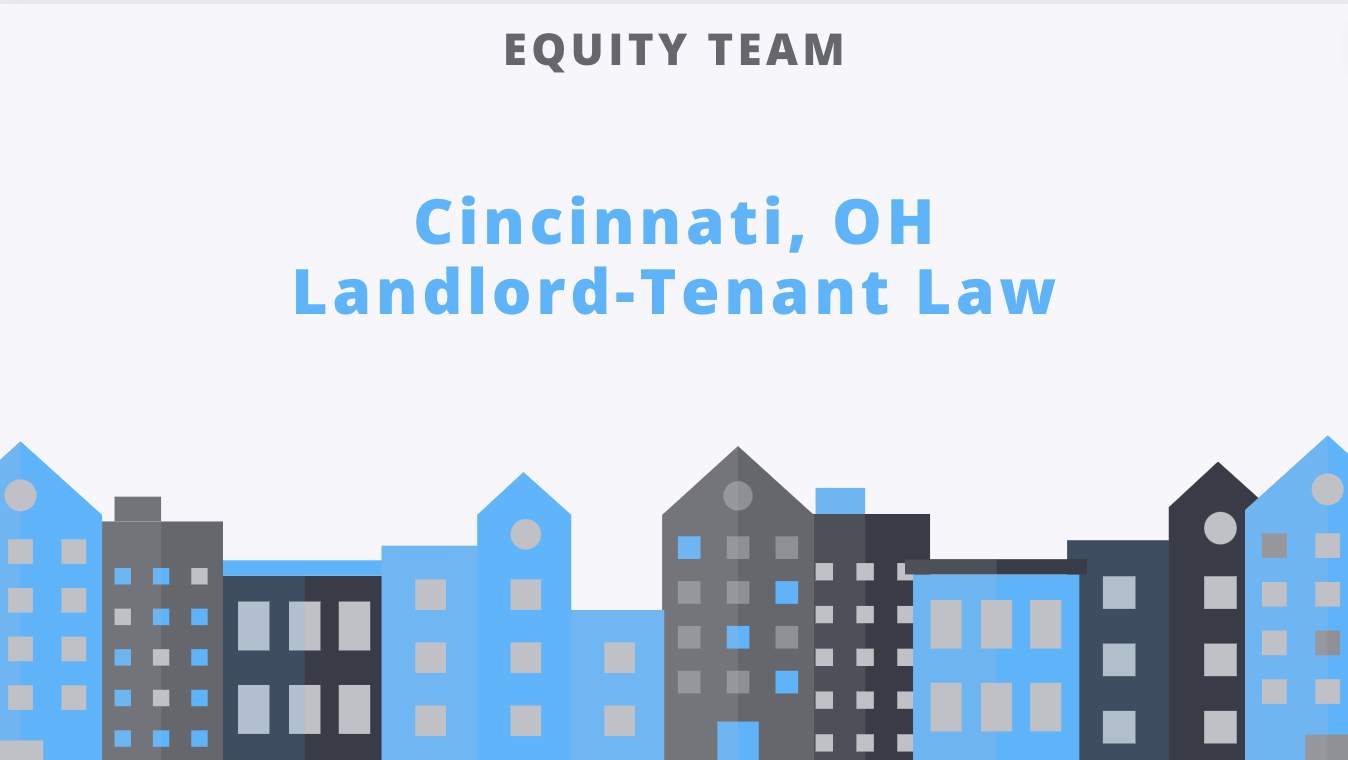
Are you an Ohio landlord, looking to make your rental business thrive? Curious about the rules and regulations that keep the partnership between landlord and tenant smooth and trouble-free? Well, you’re in the right place! Ohio Landlord Tenant Law can be the best friend of a landlord or a potential headache.
But don’t worry; we’re here to make it your ally as a landlord. We’ll walk you through the ins and outs of the landlord tenant laws, explaining everything in plain language. Whether it’s about security deposits, how tenants pay rent, or understanding the rights of your tenant or of landlords, we’ve got your back. Let’s make being a landlord in Ohio a breeze!
Required Landlord Disclosures Under Ohio Law
A landlord must disclose certain information to every tenant in their lease or rental agreement according to Ohio Landlord Tenant law. The following are the disclosures that a landlord must make at the beginning of the tenancy.
Non-refundable Fees
In the realm of lease creation, landlords often find themselves considering nonrefundable fees. These fees a landlord may consider can take various forms, such as pet fees or application fees, and while Ohio’s legal framework doesn’t explicitly mandate them, they are a common practice. This is not the same as covering unpaid rent. Under Ohio law, unpaid rent can be covered by things like security deposits.
A landlord should view them as an opportunity to enhance their lease arrangements and foster goodwill with tenants. Landlords should be transparent and proactive, clearly outlining these fees in the lease agreement.
This transparency in the lease or rental agreement promotes trust and a smoother leasing experience, ensuring both landlord and tenant fully understand the financial obligations involved in their lease agreement.
Security Deposit
Under Ohio landlord tenant law, a landlord can charge a tenant a security deposit as one of the lease terms. Consider the security deposit as a safeguard, a financial safety net that affords landlords a layer of protection against potential property damage or if a tenant fails to pay rent. While it offers peace of mind, the terms of the security deposit must be meticulously defined in the lease.

This includes the conditions under which deductions can be made and the timeline for its return. The explicit nature of these terms mitigates the risk of misunderstandings or disputes, fostering a more transparent and harmonious relationship between Ohio landlords and tenants.
Rights of Domestic Violence Victims
The Ohio landlord tenant law recognizes the unique challenges faced by domestic violence victims. While our initial discussion didn’t delve deeply into this topic, it’s important to acknowledge the legal provisions that protect tenants in such situations.
Depending on the circumstances, tenants who are domestic violence victims may have special provisions for lease termination. This offers a layer of security and support, ensuring their safety remains a top priority without undue burdens during challenging times. If you or someone you know is suffering, reach out to the Ohio Domestic Violence Victims Network for help.
Landlord or Agent Identity
Transparent communication lies at the heart of a successful relationship between Ohio landlords and tenants. Landlord tenant laws mandate that every tenant should be fully informed about who is responsible for rental management, maintenance, and the individual or entity holding the property’s title.
This transparency is not just a legal obligation but a practical necessity. It streamlines communication channels and expedites responses in emergencies. Ohio tenants can rest assured that they know whom to contact for various property-related matters, fostering a sense of security and trust.
Move-in Checklist
While not explicitly required by Ohio landlord-tenant law, the move-in checklist is an invaluable tool in the landlord toolkit. This checklist serves as an initial documentation of the property’s condition at the start of the lease or rental agreement. Its significance becomes apparent when a landlord is assessing wear and tear upon termination of the tenancy.

For an Ohio landlord, it provides a baseline for rental premises conditions, aiding in the fair evaluation of any damage beyond normal use. For tenants, it acts as a protective shield, offering a clear record of the property’s state when they moved in, ensuring they aren’t held responsible for pre-existing issues. This simple yet effective tool contributes to a more transparent, fair, and efficient lease-end process. It also ensures adherence to Ohio landlord tenant law.
Ohio Tenant Rights and Responsibilities
Let’s delve into the fundamental rights and responsibilities of each tenant under Ohio landlord tenant laws. From living in habitable conditions to paying rent promptly, Ohio tenants play a crucial role in the relationship between landlords and tenants. If a landlord fails in any of their duties, they could be held liable under the rental agreements or the Fair Housing Act.
Tenant Rights
The following are the basic tenant rights under Ohio landlord-tenant laws, as made possible by the owners of the rental properties:
- Habitability: Every tenant has the right to a safe, clean, and structurally sound rental premises. Habitability includes having essential utilities such as water and electricity.
- Repairs: When there are issues, Ohio tenants have the right to report and expect resolutions from their landlord within a reasonable time. This ensures the premises remain in a livable state.
- Rent Withholding: If a landlord fails to make essential repairs to the premises in a reasonable timeframe, Ohio landlord-tenant law allows tenants to security deposit their rent with a court until resolutions are reached between them and the landlord.
Tenant Responsibilities
The following are the basic tenant responsibilities in the state of Ohio when staying in rental properties. During their tenancy, tenants must:

- Rent Payment: The core of the landlord-tenant lease is the tenant’s obligation to pay rent on time.
- Premises Maintenance: Beyond major repairs, Ohio tenants are expected to keep their living space clean, safe, and sanitary.
- Legal Usage: All activities held by the tenant within the premises must adhere to local, state, and federal landlord-tenant law.
- Neighbor Relations: The tenant must respect the peace and quiet of their neighbors.
Ohio Landlord Rights and Responsibilities
Ohio’s landlord-tenant relationship hinges on a delicate balance between the rights granted to landlords and the corresponding responsibilities they must uphold. Let’s delve deeper into what these rights and responsibilities entail, providing a comprehensive guide for landlords in Ohio.
Landlord Rights
The following are the basic landlord rights in the state of Ohio:
- Timely Payments: An Ohio landlord has the right to expect tenants to pay rent in full and on time.
- Evictions: A landlord can evict a tenant for legitimate reasons including unpaid rent, ensuring the property’s safety and profitability.
- Rent Increase: Without a rent control system in Ohio, landlords can adjust rent for their tenants based on market conditions, provided they adhere to the terms in their rental agreement and provide written notice of rent increase.
Landlord Responsibilities
The following are the basic Ohio landlord responsibilities. Landlords must:
- Maintenance: Ohio landlords must maintain their dwelling to a reasonable extent for their tenant, ensuring they’re safe and livable as residential premises during the tenancy.
- Essential Amenities: Beyond structural safety, a landlord must provide amenities like heating in winter and smoke detectors for further tenant safety during the tenancy.
- Repair Timelines: Once notified by the tenant, the landlord must address essential repairs in a “reasonable time” to maintain the habitability of the premises.
- Privacy: Respecting tenant privacy is paramount, with most situations requiring at least a 24-hour written notice before a landlord can enter the residential premises.
An Overview of the Landlord-Tenant Laws in Ohio
Here is a general overview of the various components of Ohio landlord-tenant laws:

- Tenant Privacy: Under Ohio landlord tenant law, while a landlord owns the residential rental, every tenant has the right to their privacy. Any entry, whether for maintenance or inspection, generally requires prior, written notice, barring emergencies.
- Condition, Maintenance, and Repairs: Ohio landlords must keep properties in reasonable condition, ensuring they remain in good repair and are safe for habitation. A tenant may withhold rent if these conditions are not met.
- Ohio’s Housing Discrimination Laws: Ohio, in line with federal standards, prohibits housing discrimination, promoting equal opportunity for all potential renters when it comes to a rented premises.
- Security Deposits: These are often a contentious point in a landlord-tenant relationship. Clearly defining security deposit terms for the tenant can prevent landlord-tenant disputes upon termination of the lease or rental agreement. The landlord may even need to pay interest, depending on how the deposit was stored.
- Required Landlord Disclosures: Adding disclosures, like potential lead-based paint in older properties, to the lease agreement ensures tenants are aware of potential health and safety risks, and is necessitated by landlord-tenant law.
- Renters’ Rights to Withhold Rent: This powerful right allows each tenant to withhold rent payments and ensures they are not obligated to pay rent if the landlord does not fulfill their responsibilities as outlined in the lease agreements.
- Small Claims Lawsuits: For disputes under $6,000, Ohio provides an expedited legal process to resolve issues without lengthy court battles in municipal or county court. If a landlord fails to uphold their duties as a landlord, court can be long and hard.
Bottom Line
If you’re a landlord and have specific questions about Ohio landlord-tenant laws, hire the services of a qualified Ohio attorney. Alternatively, a landlord can seek help from a knowledgeable rental management company. Get in touch with our team at Equity Team Property Management to learn more!
Disclaimer: This blog should not be used as a substitute for legal advice from a licensed attorney in your state. Laws frequently change, and this post might not be updated at the time of your reading. Please contact us for any questions you have in regard to this content or any other aspect of your rental property’s management needs.
